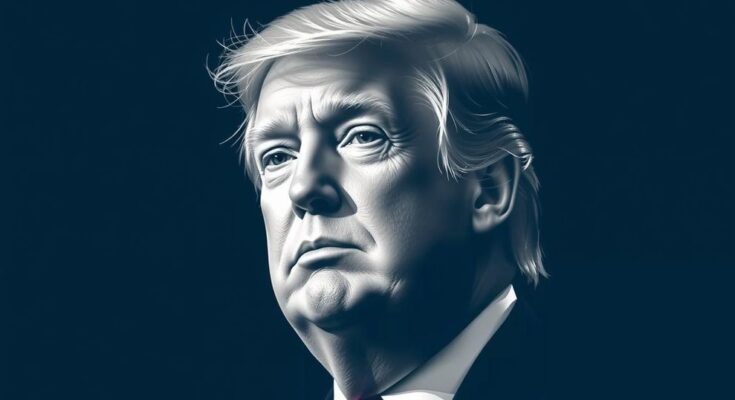Donald Trump’s educational agenda seeks to eradicate what he deems ‘wokeness’ in schools by threatening federal funding to those who do not comply with his policies. Key tenets include banning discussions on gender identity and race, dismantling diversity programs, and restricting transgender participation in sports. His proposals reflect broader political conflicts, and while his methods could reshape school governance, critiques suggest they may undermine essential educational services.
Donald Trump envisions reshaping America’s education system according to his agenda of dismantling what he perceives as ‘wokeness’ and leftist ideologies in schools. As he prepares to take office, a key element of his plan is to utilize federal funding as a weapon against educational institutions that fail to align with his views. His proposed measures include banning discussions around gender identity and structural racism, abolishing diversity initiatives, and pushing for stringent regulations that would keep transgender athletes from competing in girls’ sports. Throughout his campaign, Trump has painted educational institutions as arenas for political combat, intent on restoring control from liberal influences. His sweeping plans threaten to cut federal funds to schools engaging with concepts he labels as ‘critical race theory’ and those enforcing COVID-19 safety measures. Critics argue that Trump’s views are exaggerated, highlighting the absence of substantial evidence for widespread leftist indoctrination in schools. Nonetheless, his agenda includes offering extensive incentives to states adopting conservative educational policies, including dismantling teacher tenure and allowing parents more control in school leadership choices. Among his most audacious goals is the outright elimination of the U.S. Department of Education, which he claims has succumbed to radical ideologies. While Trump cannot instantly strip funding from numerous districts, he may exert pressure on select schools through civil rights inquiries, influencing others to conform. As he contemplates legislative actions aimed at imposing fines on colleges, he also envisages creating a free online university funded by taxing large private university endowments. Trump’s potential presidency could further intensify the existing divide in educational philosophy and governance.
The current discourse surrounding education in America is suffused with contention, particularly around ideologies labelled as ‘woke’ and a perceived left-wing infiltration. Donald Trump’s perspective emerges from a conservative viewpoint, aiming to reshape education to align with his ideological beliefs—eschewing teachings on race and gender that he argues promote division. His campaign promises leverage federal funds to enforce compliance among educational institutions, threatening financial penalties for those that refuse to conform. As public schools grapple with funding primarily from local and state sources, the federal government’s role, though a smaller portion, could have a cascading effect if Trump applies his proposed cuts strategically. The tension in educational policies reflects broader national dialogues about inclusivity, governance, and the purpose of education itself.
Trump’s educational agenda pushes towards radical reform, aiming to eliminate perceived progressive influences from America’s schools, using federal funds as leverage to force compliance with his vision. His strategies encompass broad bans on controversial topics, incentives for states embracing conservative educational reforms, and potential legislation targeting diversity initiatives. As this narrative unfolds, the clash between divergent educational philosophies promises to shape the future landscape of American education, raising fundamental questions about equity, accessibility, and the role of ideology in shaping young minds.
Original Source: www.pbs.org



